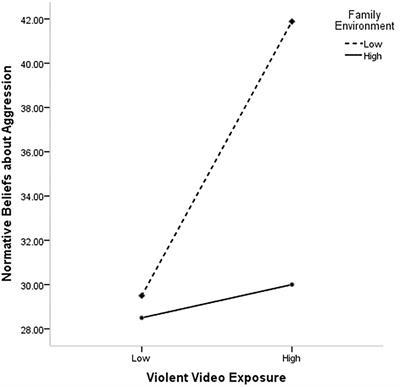After mass shootings, the media and public officials often question the role of the shooter’s video game habits.
The American Psychological Association (APA) considers violent video games a risk factor for aggression.[1] In 2017, the APA Task Force on Violent Media concluded that violent video game exposure was linked to increased aggressive behaviors, thoughts, and emotions, as well as decreased empathy. However, it is not clear whether violent video game exposure was linked to criminality or delinquency.
Do Violent Video Games Increase Aggression?
Studies have shown that playing violent video games can increase aggressive thoughts, behaviors, and feelings in both the short-term and long-term.[2] Violent video games can also desensitize people to seeing aggressive behavior and decrease prosocial behaviors such as helping another person and feeling empathy (the ability to understand others). The longer that individuals are exposed to violent video games, the more likely they are to have aggressive behaviors, thoughts, and feelings. These effects have been seen in studies in both Eastern and Western countries. Although males spend more time than females playing violent video games, violent video game exposure can increase aggressive thoughts, behaviors, and feelings in both sexes.
Aggressive behavior is measured by scientists in a number of ways. Some studies looked at self-reports of hitting or pushing, and some looked at peer or teacher ratings on aggressive behaviors. Other studies looked at how likely an individual was to subject others to an unpleasant exposure to hot sauce or a loud noise after playing violent video games.

Unfortunately, few studies have been completed on violent video game exposure and aggression in children under age 10. There is also little information about the impact of violent video game exposure on minority children.
There have not been many studies on the effects of different characteristics of video games, such as perspective or plot. However, some studies have found that competition among players in video games is a better predictor of aggressive behavior than is the level of violence.[3]
Do Violent Video Games Increase Violence?
Violence is a form of aggression, but not all aggressive behaviors are violent. Very few studies have looked at whether playing violent video games increases the chances of later delinquency, criminal behavior, or lethal violence. Such studies are difficult to conduct, and require very large numbers of children. It makes sense that since playing violent video games tends to increase the level of aggressive behavior it would also results in more lethal violence or other criminal behaviors, but there is no clear evidence to support that assumption.
Policy
In the aftermath of the Parkland shooting in Florida in 2018, policymakers are again questioning the influence of violent video games. The Entertainment Software Rating Board (ESRB) affirms that their rating system is effective, but the APA Task Force on Violent Media recommends that the ESRB revise their rating system to make the level of violence clearer. The Task Force also recommends that further research must be done using delinquency, violence, and criminal behavior as outcomes to determine whether or not violent video games are linked to violence.
Bottom Line
It is important to keep in mind that violent video game exposure is only one risk factor of aggressive behavior. For example, mental illness, adverse environments, and access to guns are all risk factors of aggression and violence.
All articles are reviewed and approved by Dr. Diana Zuckerman and other senior staff.
The National Center for Health Research is a nonprofit, nonpartisan research, education and advocacy organization that analyzes and explains the latest medical research and speaks out on policies and programs. We do not accept funding from pharmaceutical companies or medical device manufacturers. Find out how you can support us here.
References:
The American Psychological Association Task Force on Violent Media. (2017). The American Psychological Association Task Force Assessment of Violent Video Games: Science in the Service of Public Interest. American Psychologist. 72(2): 126-143. Retrieved from http://dx.doi.org/10.1037/a0040413. Accessed on March 9, 2018.Anderson CA, Shibuya A, Ihori N, Swing EL, Bushman BJ, Sakamoto A, Rothstein HR, Muniba. Violent Video Game Effects on Aggression, Empathy, and Prosocial Behavior in Eastern and Western Countries: A Meta-Analytic Review. Psychological Bulletin. 2010.Adachi, PJ and Willoughby, T. (2013). Demolishing the Competition: The Longitudinal Link Between Competitive Video Games, Competitive Gambling, and Aggression. Journal of Youth Adolescence. 42(7): 1090-104. doi: 10.1007/s10964-013-9952-2.Sanstock, JW. A Topical Approach to Life Span Development 4th Ed. New York: McGraw-Hill, 2007. Ch 15. 489-491Lemmens JS, Valkenburg PM, Peter J. The Effects of Pathological Gaming on Aggressive Behavior. Journal of Youth Adolescence. 2010.Huesmann LR, Moise J, Podolski CP, Eron LD. (2003). Longitudinal relations between childhood exposure to media violence and adult aggression and violence. Developmental Psychology. 35:201-221.